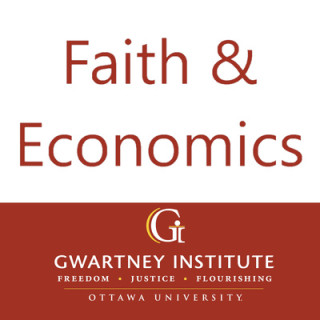

Podcast number 150!! We are happy to share this huge milestone with a special guest. Jerry Bowyer joins the Gwartney team this week, discussing his book The Maker vs. The Takers. Jerry's book is a close reading of the Gospels that takes history and archeology into account, demolishing the myth of a socialist Jesus.
Timeline:
Jesus and Economics- 3:15
"Tear Down" Impulse- 5:45
Revelation from God, That isn't Fallen- 8:40
Jesus is Engaged with Economics- 13:00
Jesus and the Young Rich Ruler- 16:00
Galilei Functioning Entrepreneurially- 19:10
Nature of the Class- 22:15
Maker vs. Taker- 24:00
Israel is Supposed to Fix Rome- 26:35
Hell on Earth- 29:35
Jesus and The Market- 32:00
Quote of the cast:
"And Christianity could critique itself and still survive. " - Jerry Bowyer